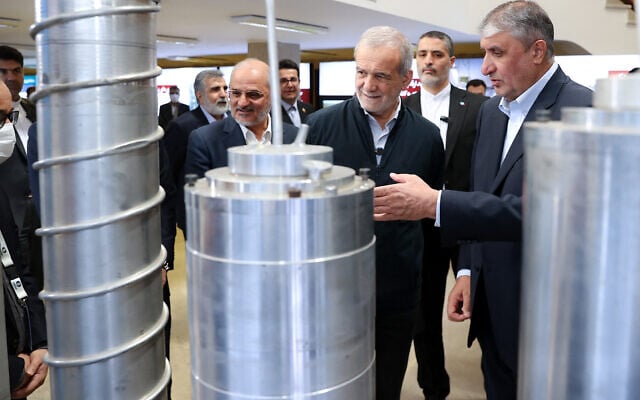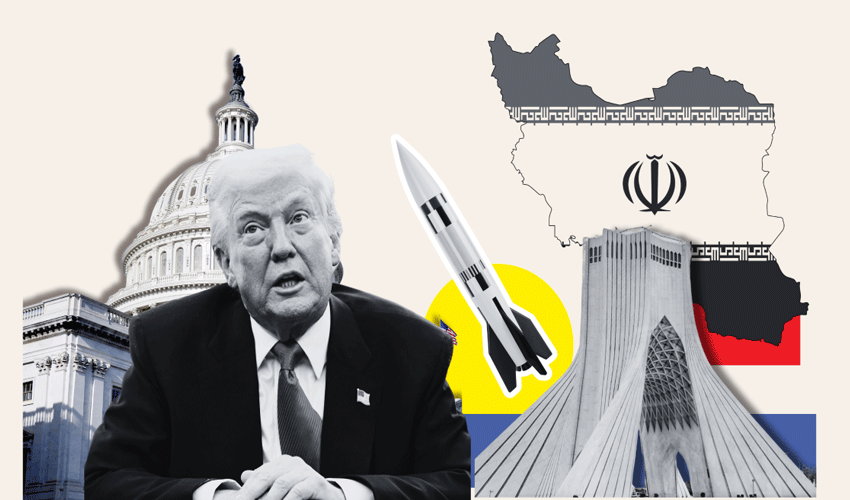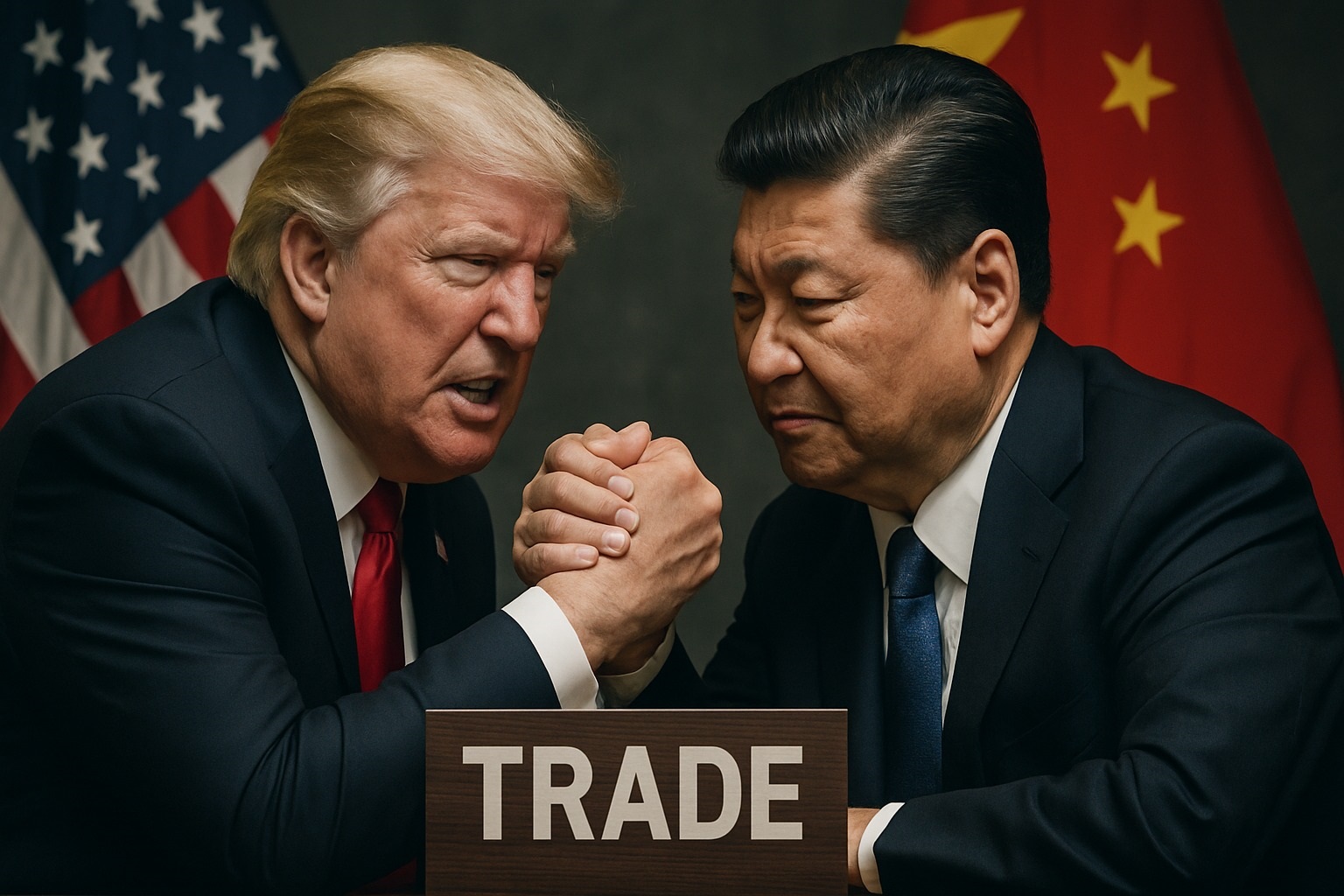Iran and the US recently conducted a second round of high-level nuclear negotiations in Rome and also decided to resume talks next week.
Though there was diplomatic outreach, there are few hopes of de-escalation because the military threats have continued to escalate and there have been mixed signals coming from both sides.
Trump's firm stance
US President Donald Trump has maintained maximum pressure on Tehran, reminding the leadership of Iran constantly of its options: an agreement or war.
Trump's negotiation strategy with Iran has been aggressive and straightforward, reaffirming his message that Iran could either negotiate for a good deal or suffer dearly.
On several occasions, Trump has threatened that Israel would spearhead a military response if the negotiations collapse. Nonetheless, in a recent remark, Trump exercised restraint, adding that though military action was still possible, he liked to give diplomacy a chance.
.jpg)
He reiterated that "Iran has a chance to have a great country and to live happily without death," expressing his wish for non-violent solution but hinting that if negotiations are not successful, Iran could face severe consequences.
This direct dealing represents a dramatic change in US policy, in that it reflects Trump's adherence to an alternative, more strategic style of diplomacy than the preceding administrations.
Why Iran returned to the table?
In 2018, Trump boldly withdrew the US from the Joint Comprehensive Plan of Action (JCPOA), the 2015 nuclear deal that had restricted Iran's nuclear program in return for sanctions relief.
Trump contended that the agreement did not go nearly far enough to keep Iran from developing a nuclear weapon, and he re-imposed tough sanctions under his "maximum pressure" policy.

Even as there was some initial resistance, Iran came back to the bargaining table, demonstrating its acknowledgment of the dire fallout of further escalation. Trump's policy of economic sanctions and war threats has worked to a significant extent in negotiating Iran back into the bargaining table. Though Iran asserts that it is coming to the table only because of nuclear issues and not because of threats of war, it is certain that the hardline stance by the US has made them negotiate.
Trump's negotiation leverage
Trump's tenacity has set up a one-of-a-kind leverage for America during the ongoing negotiations. Middle East Special Envoy Steve Witkoff stated clearly that Iran's nuclear weapons program and weapons-enrichment program must be done away with by any final deal.
That aligns Trump with his overarching desire to bar Iran from the possession of nuclear weapons while never allowing the US to sign into being a potential agreement that can end up taking the form of the JCPOA.
In a recent statement, Witkoff emphasized that the US would insist on the full dismantlement of Iran’s nuclear program. However, his comments have also reflected a willingness to negotiate certain aspects of the deal, notably suggesting that Iran might be allowed to retain limited nuclear enrichment capabilities under strict oversight, something that mirrors the original JCPOA framework.

Meanwhile, diplomatic efforts around the negotiations have been frantic. Saudi Arabia's Defense Minister has traveled to Tehran to meet and deliver a message from King Salman, and Iran has also intensified ties with Russia, particularly since the beginning of the war in Ukraine. These have indicated Iran's attempts to diversify alliances while countering the US pressure.
Meanwhile, the International Atomic Energy Agency (IAEA) collaborated closely with Iran to deescalate tensions and reinstate inspection procedures, illustrating a mutual stake in transparency and accountability in nuclear affairs.
Trump's pragmatic diplomacy
Trump's dealings with Iran are marked by pragmatism. As his administration grapples with internal disputes over the details of a deal, particularly on the dismantling of Iran's nuclear program, Trump's leadership has always leaned towards a strategic equilibrium between diplomacy and military deterrence.
His management of the nuclear negotiations indicates a diplomatic approach based on strength, with firm and clear goals.
Trump's strategy mirrors his larger foreign policy approach: use strength to negotiate adversaries to the negotiating table, with the goal of achieving peace through shrewd negotiation. His leadership has helped guide a unpredictable region in which military threat and diplomatic overtures need to be expertly weighed.
Challenges and uncertainty ahead
In spite of the encouraging negotiations, the road to an overall agreement is far from clear. Iran has made it clear that it will not destroy its nuclear facilities, which it considers essential to its sovereignty. However, the US insists that any agreement must provide for Iran not to be able to produce nuclear weapons, and this has caused acrimonious debate on the details of an agreement.
The matter of Iran maintaining the ability to enrich nuclear materials is a principal point of contention, and Trump's advisors are split on how to proceed. While hardliners in the administration, including National Security Adviser Michael Waltz, demand that Iran dismantle its nuclear apparatus in its entirety, some, including Witkoff, have proposed that capping enrichment at a peaceful level might be an acceptable compromise.
The talks are only in their initial stages, and there are still numerous challenges, particularly about the fate of Iran's nuclear program. But Trump's success in getting Iran to the negotiating table, along with his willingness to apply both diplomatic and military pressure, has laid the groundwork for what may become a turning point in global relations.
The trust deficit between the US and Iran runs deep, but Trump's diplomacy supported by unambiguous military deterrence gives a solid ground for possible breakthroughs. Although the future is uncertain, President Trump's leadership and his strategy towards the Iran nuclear negotiations demonstrate that there is a genuine commitment to finding a peaceful solution, in spite of the obstacles and setback



























